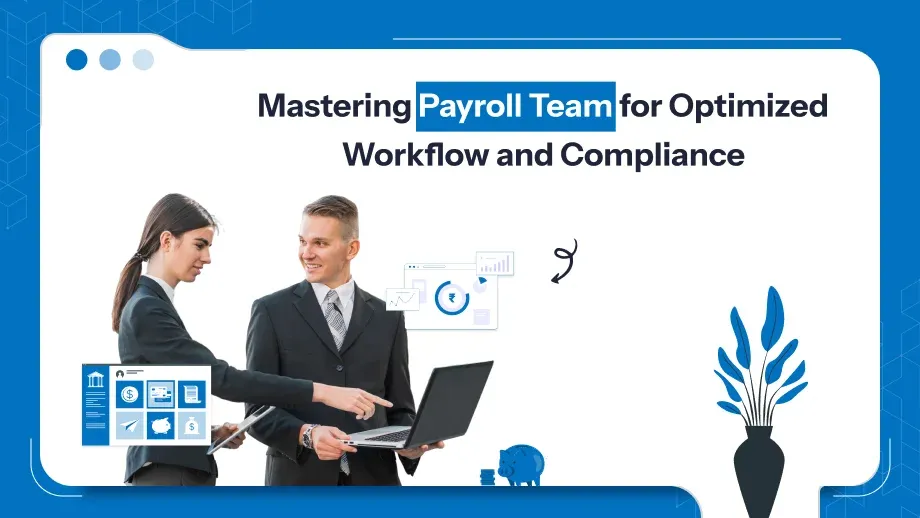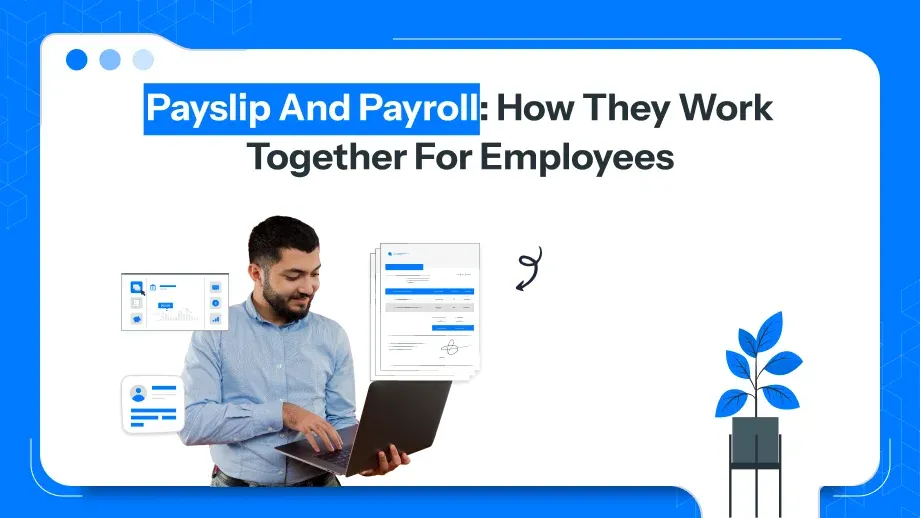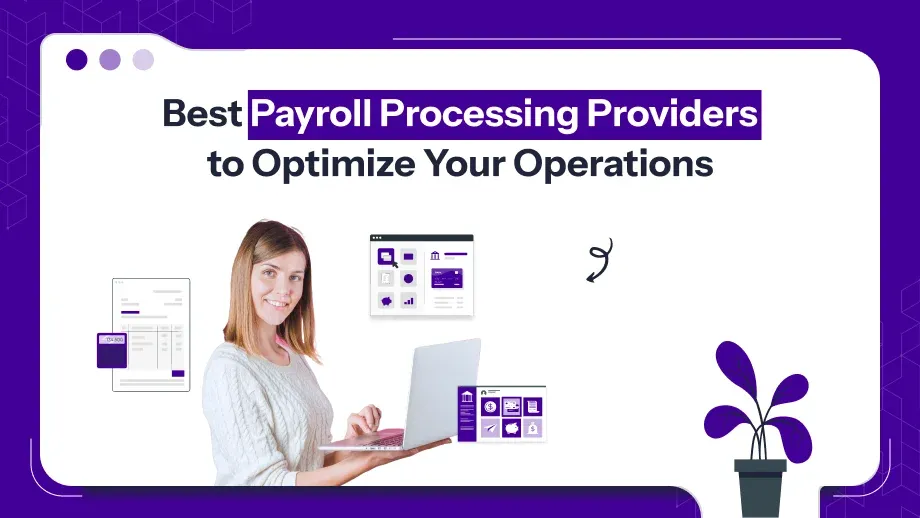Ensuring that all employees receive accurate and timely payments is the responsibility of the payroll staff. This entails handling benefit and retirement plan deductions, processing bonuses, calculating pay, withholding taxes, and making sure local, state, and national tax rules are followed.
Grab a chance to avail 6 Months of Performance Module for FREE
Book a free demo session & learn more about it!
-
Will customized solution for your needs
-
Empowering users with user-friendly features
-
Driving success across diverse industries, everywhere.
Grab a chance to avail 6 Months of Performance Module for FREE
Book a free demo session & learn more about it!
Superworks
Modern HR Workplace
Your Partner in the entire Employee Life Cycle
From recruitment to retirement manage every stage of employee lifecycle with ease.


Seamless onboarding & offboarding
Automated compliance & payroll
Track performance & engagement
Mastering Payroll Team for Optimized Workflow and Compliance
- team payroll
- 13 min read
- December 26, 2024

Running a business successfully involves a payroll team to give careful attention to many details, and one of the most important ones includes payroll. Payroll, in particular, is time-consuming and complex as a business grows. A devoted payroll software ensures that such payroll-related tasks as determining wages, processing tax withholdings, and dealing with employee benefits are performed to precision and efficiency.
By out-of-house payroll, the management and business masters of the firm can focus on growth and strategies, knowing that their people are in good hands of its payroll function. An experienced payroll team not only has accuracy but also saves your business from costly errors- missed payments, underpayment taxes, or even violation cases that might lead to further fines or legal actions against the company.
In addition, a good team adds a level of professionalism and reliability that helps in employee satisfaction and trust. When the employee is paid correctly and in due time, it helps increase morale and productivity.Nowadays, accounting teams can handle payroll more quickly, correctly, and with a lower chance of human error thanks to payroll automation tools and payroll technology. Having a capable payroll staff will reduce the likelihood of non-compliance and ensure that the business complies with ever-evolving labor and tax rules.
Why Does Your Business Need a Strong Payroll Team ?
Among the most crucial tasks for every business is payment.A business cannot do without a dependable payroll system, just as it cannot do without marketing, sales, and customer service. It ensures proper and timely payments to employees, allows you to adhere to tax laws, and makes your company more efficient in general. Regardless of the size of your company, having a well-trained payroll staff is essential for efficient operation and avoiding costly mistakes.We’ll go over why having a capable payroll staff is not only essential for your company, but also an advantage in strategy.
1. Timely and Accurate Employee Payments
At the heart of every payroll function is something as simple yet vital, which is ensuring that employees receive correct and timely paychecks. A good team lead payroll will take care of doing all the calculations for wages, deductions, overtime, bonuses, and so on to ensure discrepancies do not occur in these paychecks. Employees must be paid on time—that is, for rent, bills, or savings. If payroll is mishandled, late payments or errors can quickly lead to employee dissatisfaction, decreased morale, and a lack of trust in management.
2. Legal Compliance and Tax Accuracy
Federal, state, and local tax regulations constitute the most complicated element of running payroll. A strong team for payroll makes sure all legal regulations are complied with-in terms of proper tax withholdings, due dates to submit to taxing authorities and even benefits offered to employees-just to mention a few. Some common errors include failing to withhold proper amounts of tax on some of your staff.
3. Efficient System Process
A good payroll team does not only perform routine payroll functions but also pays attention to the payroll processes to increase the overall business efficiency. Automating the time-tracking system, utilizing payroll software, and making clear workflows can significantly reduce the amount of manual work done and minimize errors. Proper payroll tools will enable your payroll team to process payroll runs much more efficiently, minimizing the time spent on every pay period and allowing faster, error-free processing.
4. Employee Satisfaction and Retention
The backbone of any business will be the employees. Keep satisfied, it shall mean success for your company. The easiest way to start building trust and loyalty in them is by ensuring accuracy in their paychecks. Employees get valued and motivated if they believe that their paychecks are being processed by professionals with a care for accuracy. Other responsibilities of the payroll team include managing the employee’s benefit package that may comprise health, retirement, or bonuses. Such an effective payroll system boosts the confidence of employees about their being well-placed with security for financial lives.
5. Planning and Reporting on Finances
A successful payroll staff not only handles payments but also offers insightful accounting information: Regular budget predictions, tax summaries, and payroll reports assist you with making the best financial decisions for your business. Making informed recruiting or restructuring decisions, forecasting future costs, and calculating labor costs all depend on payroll data.
6. Scalability and Flexibility as Your Business Grows
Payroll complexity increases with growth in the business. Just as something which was suitable enough for the small team and their size may not now be effective when you get more people, increase salary packages, or expand operations to a new location. A well-structured payroll team will be scalable, flexible, and able to adapt with the changing dynamics of the business.
7.Protecting the Image of Your Company
In the connected age of today, rumors spread quickly, and nothing damages your company’s reputation quicker than employee discontent. Whether over missed payments, incorrect tax forms, or errors over benefit deductions, payroll is one of the biggest sources of frustration for employees. These kinds of problems can also start to create a ripple effect, hurting your employer brand and even deterring your top talent from applying.
Our Payroll Team Ensures Accuracy and Timeliness Every Time.
Trust Our Experts to Manage Your Payroll with Precision!
Essential Tools and Software for Your Payroll Team
The complex procedure of payroll involves a number of duties, including calculating employee wages, making sure tax payments are made on time, and keeping accurate records. This can be complex and subject to errors without the proper payroll tools and software to streamline these activities. The following section focuses on the tools and software your payroll team needs to function efficiently; this will enable timely and accurate payroll processing while minimizing administrative burden.
1. Payroll Processing Software
The heart of any payroll team’s toolkit is payroll processing software.This kind of software would automate wage calculation, payroll deductions, benefits, overtime, among many other things. Such software would ensure that there is both timely and accurate payment to employees while abiding by local, state, and federal regulations.
2. Time and Attendance Tracking Tools
Accurate timekeeping is essential for payroll computation, especially when there is an hourly employee or overtime. The tools used to track employee working hours, leave requests, and schedules include time and attendance.These systems directly integrate with payroll software to ensure that wage calculations are based on accurate data.
3. Tax Calculation and Filing Software
Payroll is a very tax-related process, from income taxes withheld to state-specific contributions, such as unemployment insurance or paid leave. Using the proper tax calculation and filing software ensures compliance and minimizes the risk of errors, fines, or penalties.
4. Benefit Management Software
Employee benefits are part of the payroll cycle, whether it is health insurance or retirement contributions or other benefits that include paid time off. It is a benefits management tool that ensures that all your benefits are tracked, right deductions are applied, and employees are enrolled in the right plans.
5. HR Management Software (HRMS)
HR Management Software, or HRMS, is that type of solution that combines everything, ranging from payroll to employee data, benefits, and performance management. It will thus make the whole process of HR more efficient, thereby allowing one to have his employee records, onboarding, and payroll in just one place. It could also automate compliance tracking, performance reviews, and even engagement.
6. Reporting and Analytics Tools
Accurate reporting monitors payroll expenses, tax liability, and compliance. A reporting tool allows the team leader payroll to generate insights derived from payroll data. Reports will enable business leaders in making informed decisions by ascertaining labor cost monitoring, overtime trends, tax obligations, and so many other aspects.
The function and duties assigned to a payroll team leader
Payroll Team Leader oversees everything connected with the payroll section for the system to go uninterrupted and in such a manner that all workers’ pays are accurate and as time schedules. Along with other factors, including ensuring laws and regulations connected with his sector are upheld, payroll supervisor would supervise payrolling time tab along with making sure appropriate workflow of work is taken up by payrolling clerk employees. These are key job functions for a pay staff leader.
1. Payroll Processing Oversight
A payroll team lead directly oversees how payroll is processed every pay period. This includes, first and foremost, guaranteeing that the wages, with tax deductions, benefits, and contributions to retirement, were computed correctly. Overtime, bonuses, and commission would also have to be factored into the wage. They need to guarantee all payroll-related activities occur according to schedule and devoid of errors.
2. Oversee Payroll Team
Mostly, the payroll team leader oversees a team of payroll clerks or specialists in most organizations. The team leader has to delegate the tasks, train new members of the team, and help support the team members so that payroll is processed effectively. They also carry out routine performance reviews, give them feedback, and ensure the team is following company policies and procedures.
3. Ensure Legal Compliance
It has one of the most serious duties of a team payroll leader: to adhere strictly to tax laws and compliance requirements to ensure employment regulations are well observed. They should have current knowledge of legislation surrounding payrolls, which ranges from changes in tax rates to labor laws, benefits, and wage policies for employees. The leader assures the correct deduction and remittance of taxes under the prevailing federal, state, or local regulations.
4. Payroll Reporting
Payroll team leaders generate and analyze payroll reports for use by senior management to track labor costs, trends in compensation of employees, and assurance of accurate financial reporting. These reports may include summaries of salaries, tax filings, benefits deductions, among others.
5. Payroll software implementation and maintenance
With the increasing complexity of payroll systems, team leaders should be able to pick and implement payroll and HR skills software. They will coordinate with IT departments to make sure that the software is set up correctly, integrated with other systems (such as time-tracking, HR management, or finance software), and kept updated to reflect tax law changes.
Key Skills for a Payroll Team Leader
Managing a payroll team and handling payroll software requires a unique set of skills. Here are the key skills necessary for a payroll team leader to succeed:
1. Proficiency with Payroll Software
A payroll team leader must be highly skilled in using payroll and HR software to streamline processes. This includes being familiar with tools that handle payroll calculations, tax deductions, direct deposits, and compliance checks.Implementing sophisticated payroll software capabilities, creating reports, and resolving technological issues are all skills a team leader should possess. ADP Workforce Now, Gusto, Paychex, QuickBooks Payroll, and Ceridian Dayforce are a few of the most commonly utilized application platforms.
2. Compliance with Tax Laws
Changes in tax and employment laws dictate a change in understanding and the payroll team leader needs to be aware of the tax regulations, labor laws, and industrial standards that govern the process. To be specific, it will mean familiarity with local, state, and federal tax codes; wage and hour laws; employee classification-exempt and non-exempt classification-and ensuring compliance with laws and regulations such as FMLA, ACA, and wage garnishment.
3. Pay Attention to Details
Payroll is one of the most number-crunching activities, where little mistakes result in huge issues. Thus, an effective payroll team leader needs to have strong attention to detail in spotting any errors that may result from pay calculation discrepancies, tax filings, or benefits deductions. This means accurate payroll and correct employees’ pay.
4. Leadership and Communication
A payroll team leader must have strong leadership skills to manage and motivate their team. They need to delegate tasks, track performance, resolve conflicts, and ensure that the team works together efficiently. Clear communication skills are essential to relay payroll policies, updates, and information to both payroll team members and other departments like HR or finance.
5. Problem-Solving and Critical Thinking
Payroll-related issues, such as differences in pay, tax filing errors, or technical issues, may frequently arise. A remote team payroll leader should be able to quickly identify the problem, investigate the cause, and implement a solution. Critical thinking and decision-making are key in handling payroll challenges efficiently and preventing further complications.
Best Practices for Remote Team Payroll Management
To manage remote teams payroll calculations successfully, businesses should adopt best practices that help streamline processes, ensure compliance, and maintain accuracy. Here are the key best practices for managing remote team payroll:
1. Centralized Payroll System
To manage payment across locations, time zones, and currencies, a centralized payroll system is needed. No matter where your workers work, a single, integrated system will ensure a uniform and effective payroll procedure. Payroll processing, tax computations, and employee data management should be simple with a single pay solution.
2. Utilize Payroll Software with Global Capabilities
Payroll software that can address international needs, especially with teams whose employees are located in different countries, becomes critical in managing remote teams’ payroll. Many payroll software platforms offer solutions for global payroll, automation of tax calculations, management of multiple currencies, and ensuring compliance with local labor laws.
3. Automate Tax Compliance
Automate your tax compliance for the remote workers so that you are sure of not making an expensive mistake.Some payroll systems have tax compliance tools integrated that automatically update tax rates and laws based on the location of the employee, whether in the same state or abroad.
4. Establish Clear Policies for Time Tracking
Remote teams are likely to work flexible hours. Hence, it is important to have clear policies and tools in place for time tracking. Depending on whether the employees are hourly or salaried, an efficient time-tracking system is required to avoid payroll errors.
5.Keep Open Communication with Employees
Payroll mistakes can be frustrating and even cause dissatisfaction among employees. Maintaining clear communication, especially when working remotely, helps manage payroll expectations. The employees should have access to their pay stubs, tax documents, and any platform where they can pose questions or issues. That way, they will gain trust and avoid confusion.
Conclusion
A good payroll team ensures that employees are paid correctly and on time but also helps the organization financially by minimizing the risk of penalties or missed tax filings. Thus, investing in a skilled payroll team and appropriate technology is the key to maintaining business efficiency, keeping employees happy, and supporting long-term growth. In the long term, building an efficient team that is familiar with complex payroll processing, compliance requirements, and best practices empowers your business to address payroll issues effortlessly, even when managing a local team, a virtual workforce, or an enterprise on a global scale.
FAQs
What kind of service does a payroll team provide in the company?
Why is a payroll team important?
A payroll team is very important in ensuring that the employees receive pay promptly and accurately. Moreover, it minimizes a legal penalty for payroll tax as well as ensuring the business abides by changing labor and tax regulations.
How will payroll teams manage remote employees' payrolls?
The special considerations for remote employees involve time zones, local tax laws, and multiple currencies. Payroll teams can take advantage of cloud-based payroll software to accommodate these complexities.
How can a payroll team ensure data security?
Payroll teams handle sensitive employee data; therefore, data security is very important. They utilize secure payroll software platforms with encryption protocols to protect personal information, tax records, and banking details.
How can payroll departments manage the payroll of remote workers?
Payroll management for remote workers necessitates careful attention to local tax regulations, time zones, and several currencies. To handle these complications, payroll teams can utilize cloud-based payroll software.


